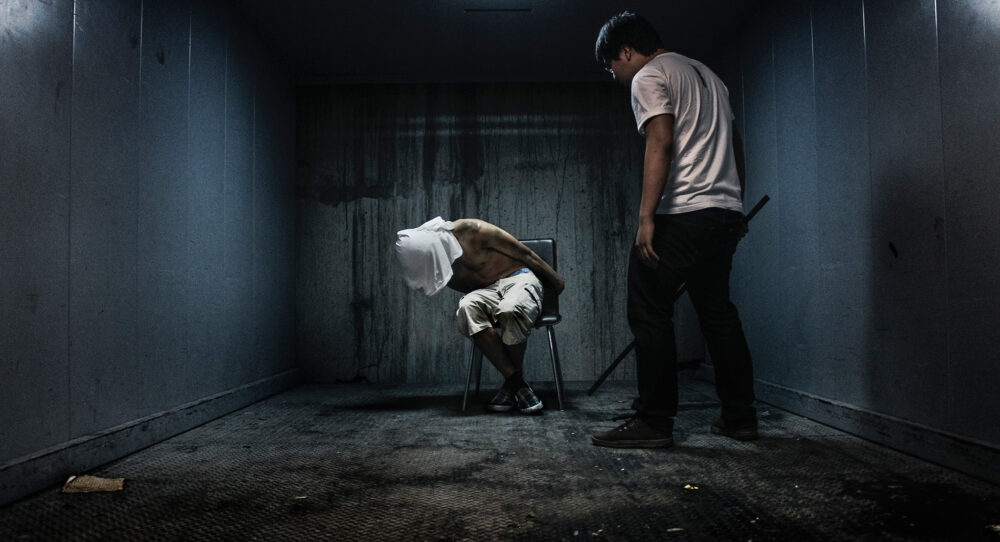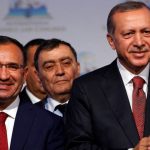More than 40 civil society organizations (CSOs) have submitted reports to the United Nations Committee Against Torture (CAT). These reports detail systematic torture practices, enforced disappearances, extrajudicial killings, and widespread impunity in Turkey.
Torture in custody and prisons is a serious problem in Turkey. Local rights groups, parliamentarians, and state authorities receive hundreds of complaints every year about it. Earlier this year, the Parliamentary Assembly of the Council of Europe (PACE) adopted a resolution expressing concern about an increase in alleged incidents reported from Turkey in recent years.
After an attempted coup in 2016, ill-treatment and torture became widespread and systematic in Turkish detention centers. Higher officials have not condemned these practices, and security forces are more likely to cover up allegations than investigate them, leading to widespread impunity.
These submissions, ahead of the committee’s 80th session, provide a comprehensive analysis of Turkey’s compliance with the Convention Against Torture and Other Cruel, Inhuman or Degrading Treatment or Punishment (UNCAT).
The 80th session of CAT, scheduled from July 8th to July 26th, 2024, in Geneva, will address the compliance of various state parties with the Convention against Torture. Reports from countries including Turkey, Ecuador, the Republic of Korea, and Côte d’Ivoire will be examined.
Among the civil society organizations that submitted reports are Solidarity with Others, The Arrested Lawyers Initiative (TALI), the Human Rights Foundation of Turkey (HRFT), and Human Rights Watch. Other organizations include the Association for Monitoring Equal Rights (AMER), the Association of Lawyers for Freedom (ÖHD), the Diyarbakır Bar Association’s Center for Children’s Rights, the Institute for Diplomacy and Economy (instituDE), and the Border Violence Monitoring Network.
These organizations highlight severe human rights violations in Turkey, focusing on issues such as torture, arbitrary detention, and enforced disappearances.
The European Association for the Defense of Rights and Freedoms (ASSEDEL) highlights systemic torture and ill-treatment in Turkish prisons, particularly for political prisoners. The report focuses on the inhumane conditions, overcrowding, denial of medical care, and arbitrary solitary confinement that political detainees face.
The case of Gökhan AÇıkkollu, a teacher who died in custody after being tortured, serves as a tragic example of severe abuse. Despite the UN Human Rights Committee’s ruling that AÇıkkollu was tortured and the state’s failure to investigate adequately, no action has been taken against those responsible.
The Association for Monitoring Equal Rights (AMER) highlights the issue of arbitrary arrests and detentions in Turkey, particularly under counterterrorism laws. These laws have resulted in the imprisonment of thousands of people, including minors and university students, without proper legal basis. The detentions serve as a tool for intimidation and suppression of dissent.
The report also emphasizes the systematic targeting of individuals associated with the Gülen movement and the broader opposition.
The Diyarbakır Bar Association’s Center for Children’s Rights sheds light on the plight of detained and convicted girls in Turkey. As of May 2024, there are 140 girls in correctional facilities, with 92 detained and 48 convicted. The report highlights various rights violations faced by these girls, including routine strip searches, restricted access to education and recreation, inadequate healthcare, and the psychological impact of detention conditions. The lack of designated facilities for detained girls leads to gender-based discrimination and neglect of their physical and psycho-social needs.
Human Rights Watch (HRW) documents cases of enforced disappearances and extrajudicial killings of individuals suspected of being associated with the Gülen movement. The report includes cases where Turkish nationals were abducted from foreign countries and forcibly returned to Turkey, where they faced torture and ill-treatment. HRW highlights the need for effective investigations into these incidents to prevent a culture of impunity.
Since the failed coup attempt in July 2016, the government of President Recep Tayyip Erdoğan has employed extra-legal methods to secure the return of its critics. The government’s campaign has relied on renditions, where the government and its intelligence agency, MİT, persuade other states to hand over individuals without due process. The victims of these operations have been subjected to a number of human rights violations, including arbitrary arrests, house raids, torture, and ill-treatment.
The Border Violence Monitoring Network (BVMN) presents evidence of Turkey’s forcible return of refugees to their countries of origin, where they face significant risks of torture. The report details violent pushbacks at the borders with Greece, Iran, and Syria, where refugees, including Syrians and Afghans, are subjected to abuse. Testimony reveals the use of excessive force, electric discharge weapons, threats, and firearms to deter migrants from seeking international protection.
The Institute for Diplomacy and Economy (instituDE) focuses on the systematic crackdown on lawyers in Turkey. The report highlights the arbitrary detention, imprisonment, and harassment of legal professionals, as well as the suppression of bar associations and targeting of lawyers for their professional activities. The report also details the torture of lawyers in police custody, emphasizing the need for independent judicial oversight.
Human Rights Watch’s submission on gender-based violence highlights the Turkish government’s failure to enforce protection orders for women facing domestic violence. Despite the high number of protection orders issued annually, the lack of effective enforcement mechanisms leaves women vulnerable to ongoing abuse. The report calls for stronger measures to protect women and ensure accountability for perpetrators.
The submission by the Arrested Lawyers Initiative to the UN Committee Against Torture focuses on how the systematic crackdown on lawyers in Turkey undermines legal safeguards against torture. Since the failed coup attempt in 2016, over 1,700 lawyers have been prosecuted, with at least 700 remanded to pretrial detention under broad and vague charges. This crackdown directly contravenes several articles of the UN Convention Against Torture, particularly those ensuring adequate legal representation and the right to a fair trial.
A joint report by the Association of Lawyers for Freedom (ÖHD), the Foundation for Society and Legal Studies (TOHAV), the Media and Law Studies Association (MLSA), and the World Organization against Torture (OMCT) highlights the inhumane conditions in removal centers. The report categorizes these conditions as ill-treatment, with access to rights largely dependent on the arbitrary attitudes of the staff. The organizations call for independent monitoring and improved oversight mechanisms to ensure humane treatment.
ASSEDEL addresses the issue of judicial independence in Turkey, which hinders victims of torture from seeking effective legal remedies. The report highlights how judges and prosecutors who are seen as opponents of the government are being targeted systematically, undermining the rule of law. Without independent judicial oversight, those responsible for torture and ill-treatment can act with impunity.
The CSOs are calling on the UN Committee Against Torture to address these severe human rights violations and hold Turkey accountable for its obligations under the UNCAT. The reports urge the committee to recommend measures that ensure effective investigations into allegations of torture, ill-treatment, enforced disappearances, and extrajudicial killings. These include conducting prompt, thorough, and impartial investigations, holding perpetrators accountable, and providing adequate compensation to victims.
According to the CSOs, strengthening judicial independence is crucial for guaranteeing the independence of the judiciary and prosecution services. This means that they can operate without political interference. Restoring the rule of law and protecting judges and prosecutors from arbitrary dismissal or harassment is vital for maintaining judicial integrity and ensuring that justice is served fairly.
Source: Stockholm Center for Freedom



